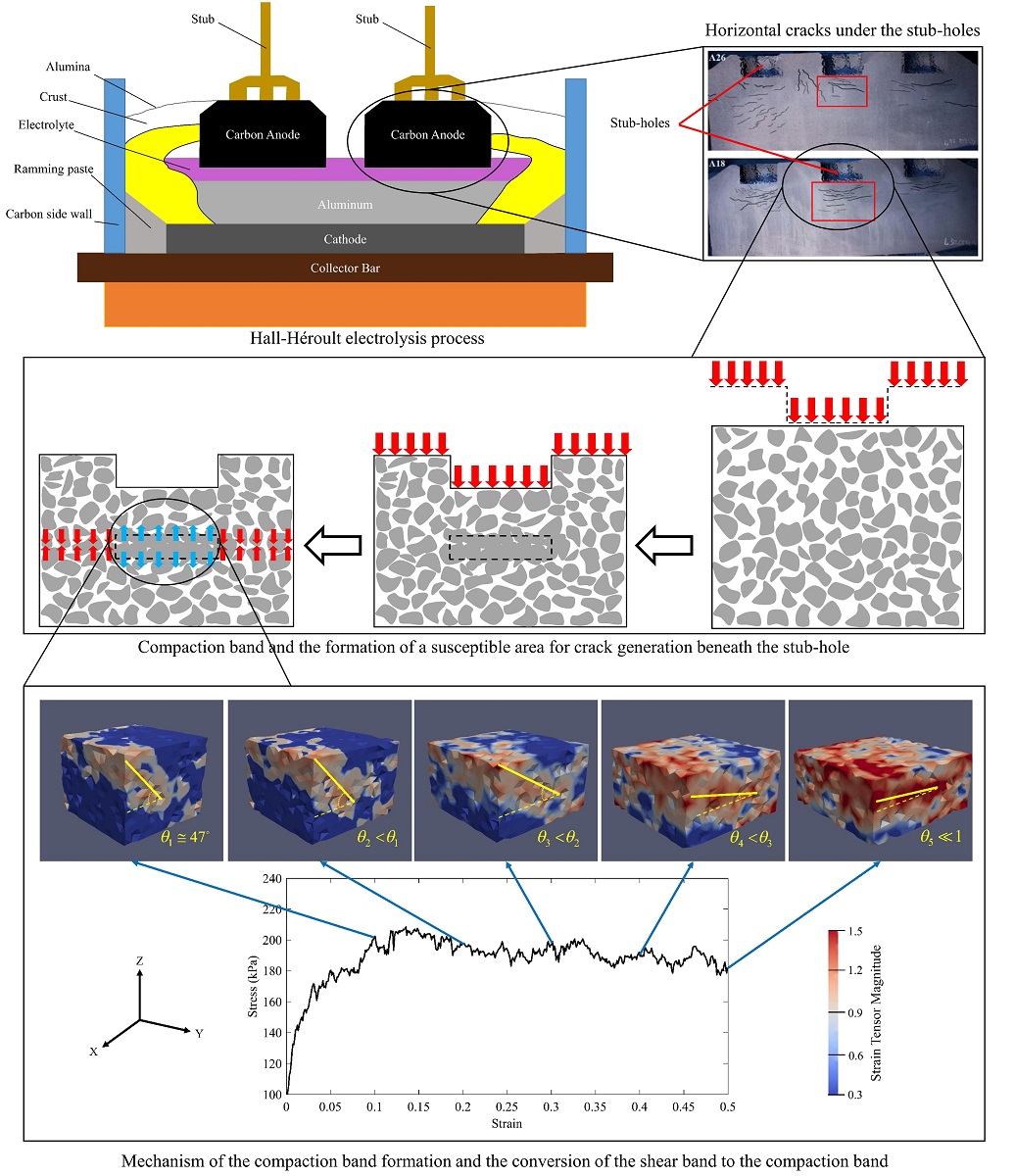An in-depth study of the failure of granular materials, which is known as a mechanism to generate defects, can reveal the facts about the origin of the imperfections such as cracks in the carbon anodes. The initiation and propagation of the cracks in the carbon anode, especially the horizontal cracks below the stub-holes, reduce the anode efficiency during the electrolysis process. In order to avoid the formation of cracks in the carbon anodes, the failure analysis of coke aggregates can be employed to determine the appropriate recipe and operating conditions. In this paper, it will be shown that a particular failure mode can be responsible for the crack generation in the carbon anodes. The second-order work criterion is employed to analyze the failure of the coke aggregate specimens and the relationships between the second-order work, the kinetic energy, and the instability of the granular material are investigated. In addition, the coke aggregates are modeled by exploiting the discrete element method (DEM) to reveal the micro-mechanical behavior of the dry coke aggregates during the compaction process. The optimal number of particles required for the failure analysis in the DEM simulations is determined. The effects of the confining pressure and the strain rate as two important compaction process parameters on the failure are studied. The results reveal that increasing the confining pressure enhances the probability of the diffusing mode of the failure in the specimen. On the other hand, the increase of strain rate augments the chance of the strain localization mode of the failure in the specimen.

